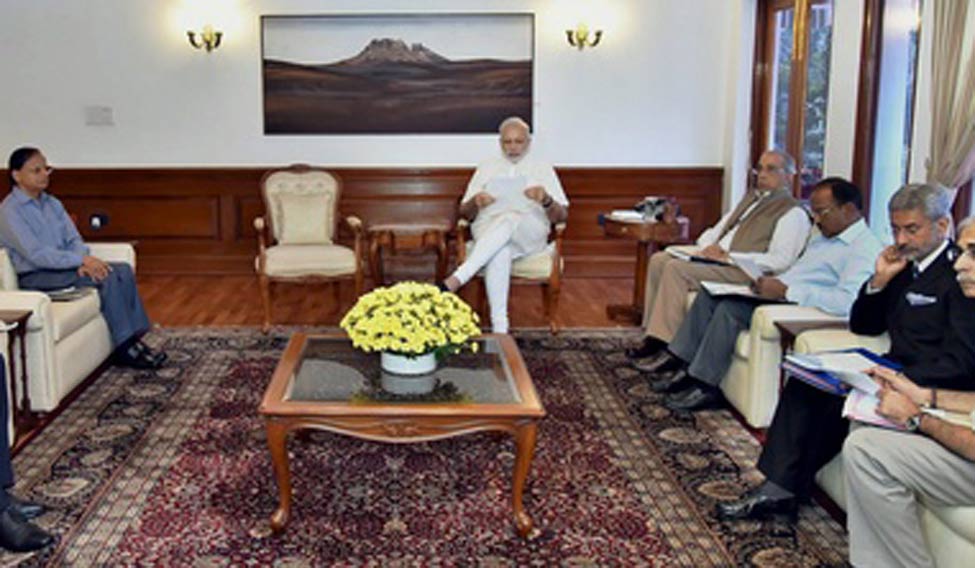A few months ago, in the wake of the Uri attacks, Prime Minister Narendra Modi convened a high level meeting after which he famously announced that “blood and water cannot flow together”. Modi stated the possibility of a rethink on the Indus Waters Treaty (IWT) and it was largely believed that among the many things India could do to rattle Pakistan, one was to restrict flow of the Indus waters and its tributaries into its neighbouring country.
Now, it seems as if the threat was empty. The Indian Indus commissioner has accepted his Pakistani counterpart's invitation for a routine meeting, which will take place in the second half of March. The two commissioners of the Permanent Indus Commission, a bipartisan body tasked with everyday implementation of the IWT, meet at least once a year, according to provisions of the treaty. They are expected to meet at Lahore.
 Indus river flow
Indus river flow
Ministry of External Affairs maintains that this meeting is not a shift in PM's stance since “the government and commission are different".
"The commission is not concerned with the political aspect and only deals with technical matters. The ministries of external affairs and water resources are not concerned with their meetings or discussions,'' say MEA sources. Incidentally, the PM's met with both foreign secretary S.Jaishankar and then water resources secretary Shashi Shekhar before he announced a rethink on the IWT. The MEA added that “regular meeting of commissioners” cannot be tantamount to “talks between governments”.
Under the provisions of the treaty, India can only use 20 per cent of the waters of the main river, Indus. Modi's blood and water statement was largely interpreted to mean that he was thinking of ways to hold back the waters of the mighty river. Although experts had pointed out that it was not a practical move—the main reason being that India had no place to hold such a huge volume of water—insiders in the water resources ministry said there were covert means of irritating Pakistan. One was not appointing the Indus commissioner, or delaying the meeting, which would create a backlog of the resolution of everyday working issues of the treaty.
Pakistan had cried foul when India announced possibility of revisitng the treaty of 1960, which was brokered by the World Bank. The World Bank asked both countries to resolve their disagreements. Anyway, there are certain issues of disagreement regarding two hydroelectric power plants India plans to build on the river system. The World Bank had then said it would, for the time being, neither appoint a neutral expert (as India requested) or the chairman of the Court of Arbitration (as Pakistan requested) and appealed to the two countries to resolve issues under the provisions of the treaty itself.
The IWT is often considered as one of the most successful treaties in the world, which has endured despite continuous hostilities and repeated wars and skirmishes. The two commissioners have met regularly—a total of 112 times—since 1960. The fact that the other meeting seems to be going on as per schedule is an indication that the Indian government is not keen to be held responsible for a flashpoint at this stage. Pakistan has been making placating moves, like putting curbs on Hafiz Saeed, banning his outfits as terror groups, and even returning a soldier who strayed into the Pakistani soil.
Pakistan's change of heart and stance may have been the outcome of a changing political landscape in the US, but it seems that for the present, India has no intention to jeopardise a time tested treaty to score a point.





